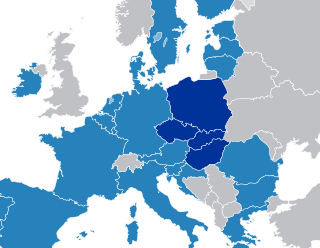
The Visegrád Group is a cultural and political alliance of four Central European countries: the Czech Republic, Hungary, Poland, and Slovakia. The alliance aims to advance co-operation in military, economic, cultural and energy affairs. All four states are also members of the European Union, the North Atlantic Treaty Organization, and the Three Seas Initiative.

The Eastern Bloc, also known as the Communist Bloc (Combloc), the Socialist Bloc, and the Soviet Bloc, was an unofficial coalition of communist states of Central and Eastern Europe, Asia, Africa, and Latin America that were aligned with the Soviet Union and existed during the Cold War (1947–1991). These states followed the ideology of Marxism–Leninism, in opposition to the capitalist Western Bloc. The Eastern Bloc was often called the "Second World", whereas the term "First World" referred to the Western Bloc and "Third World" referred to the non-aligned countries that were mainly in Africa, Asia, and Latin America but notably also included former pre-1948 Soviet ally Yugoslavia, which was located in Europe.
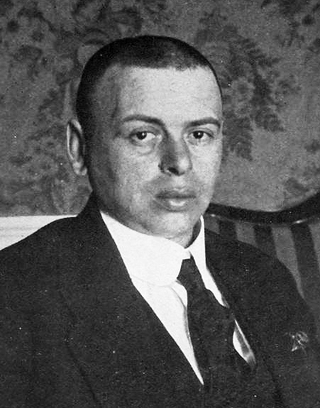
Béla Kun was a Hungarian communist revolutionary and politician who governed the Hungarian Soviet Republic in 1919. After attending Franz Joseph University at Kolozsvár, Kun worked as a journalist up until the First World War. He served in the Austro-Hungarian Army and was captured by the Imperial Russian Army in 1916, after which he was sent to a prisoner-of-war camp in the Urals. Kun embraced communist ideas during his time in Russia, and in 1918 he co-founded a Hungarian arm of the Russian Communist Party in Moscow. He befriended Vladimir Lenin and fought for the Bolsheviks in the Russian Civil War.
Radio Free Europe/Radio Liberty (RFE/RL) is an American government-funded media organization broadcasting news and analyses in 27 languages to 23 countries across Eastern Europe, Central Asia, the Caucasus, and the Middle East. Headquartered in Prague since 1995, RFE/RL operates 21 local bureaus with over 500 core staff, 1,300 freelancers, and 680 employees at its corporate offices in Washington, D.C. Nicola Careem serves as the editor-in-chief.
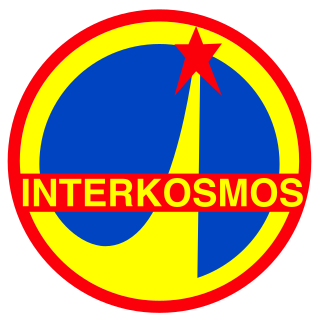
Interkosmos was a Soviet space program, designed to help the Soviet Union's allies with crewed and uncrewed space missions.
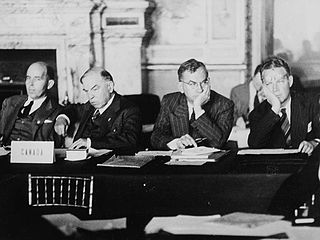
The Paris Peace Treaties were signed on 10 February 1947 following the end of World War II in 1945. The Paris Peace Conference lasted from 29 July until 15 October 1946. The victorious wartime Allied powers negotiated the details of peace treaties with those former Axis allies, namely Italy, Romania, Hungary, Bulgaria, and Finland, which had switched sides and declared war on Germany during the war. They were allowed to fully resume their responsibilities as sovereign states in international affairs and to qualify for membership in the United Nations.

The Hungarian Revolution of 1956, also known as the Hungarian Uprising, was an attempted countrywide revolution against the government of the Hungarian People's Republic (1949–1989) and the policies caused by the government's subordination to the Soviet Union (USSR). The uprising lasted 12 days before being crushed by Soviet tanks and troops on 4 November 1956. Thousands were killed or wounded, and nearly a quarter of a million Hungarians fled the country.

OTP Bank Group is the largest commercial bank of Hungary and one of the largest independent financial service providers in Central and Eastern Europe, with banking services for private individuals and corporate clients. The OTP Group comprises subsidiaries in the field of insurance, real estate, factoring, leasing and asset management, investment and pension funds. Besides Hungary, OTP Group operates in 11 countries of the region via its subsidiaries: in Albania, in Bulgaria, in Croatia, in Romania, in Serbia, in Slovenia, in Ukraine, in Moldova, in Montenegro, in Russia, and in Uzbekistan.

The PJSC LukoilOil Company is a Russian multinational energy corporation headquartered in Moscow, specializing in the business of extraction, production, transport, and sale of petroleum, natural gas, petroleum products, and electricity. It was formed in 1991 when three state-run, western Siberian companies merged. The original companies were named after their respective towns in Khanty–Mansi Autonomous Okrug that each was based in; Langepasneftegaz, Urayneftegaz, and Kogalymneftegaz. Its new name is the combination of the acronym LUK and the English word "oil".

KBC Group N.V. is a Belgian universal multi-channel bank-insurer, focusing on private clients and small and medium-sized enterprises in Belgium, Bulgaria, Czech Republic, Hungary, and Slovakia. It was created in 1998 through the merger of Kredietbank (KB), the cooperative CERA Bank, ABB Insurance, and Fidelitas Insurance. The acronym KBC stands for KredietBank and CERA.

Vasiliy Ivanovich Petrov was a Soviet and Russian military official and Marshal of the Soviet Union. He served as Commander-in-Chief of the Soviet Ground Forces from 1980 to 1985.

Lyudmila Yevgenyevna Titova is a retired Russian speed skater.

Sergey Yevgenyevich Naryshkin is a Russian politician who has served as the director of the Foreign Intelligence Service since 2016. Previously, he was Chairman of the State Duma (2011–2016) and Kremlin Chief of Staff (2008–2012); he was also chairman of the Historical Truth Commission from May 2009 until it was dissolved in February 2012. Naryshkin has the federal state civilian service rank of 1st class Active State Councillor of the Russian Federation.

During World War II, the Soviet Union occupied and annexed several countries effectively handed over by Nazi Germany in the secret Molotov–Ribbentrop Pact of 1939. These included the eastern regions of Poland, as well as Latvia, Estonia, Lithuania, part of eastern Finland and eastern Romania. Apart from the Molotov–Ribbentrop Pact and post-war division of Germany, the USSR also occupied and annexed Carpathian Ruthenia from Czechoslovakia in 1945.
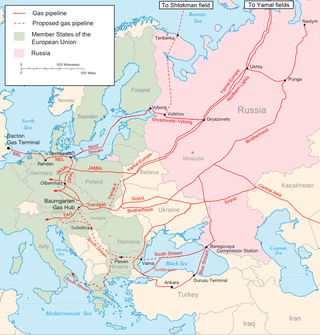
The Urengoy–Pomary–Uzhhorod pipeline was one of Russia's main natural gas export pipelines, partially owned and operated by Ukraine. It was part of the "gas in exchange for pipes program", and the Soviet-controlled bank "Ost-West Handelsbank" was opened in Frankfurt on 1 March 1973 to support the project. Russia stopped exporting through this pipeline at the end of 2024 as Ukraine did not renew the contract.

Hungary–Russia relations are the bilateral foreign relations between the two countries, Hungary and Russia. Hungary has an embassy in Moscow and two consulate-generals. Russia has an embassy in Budapest and a consulate-general in Debrecen. Both countries are full members of the Organization for Security and Co-operation in Europe.
Maria Pavlovna Titova is a Russian retired individual rhythmic gymnast. She is the 2013 Grand Prix Final all-around silver medalist

The Hungarian Soviet Republic, also known as the Socialist Federative Soviet Republic of Hungary was a short-lived communist state that existed from 21 March 1919 to 1 August 1919, succeeding the First Hungarian Republic. The Hungarian Soviet Republic was a small communist rump state which, at its time of establishment, controlled approximately only 23% of Hungary's historic territory. The head of government was Sándor Garbai, but the influence of the foreign minister Béla Kun of the Party of Communists in Hungary was much stronger. Unable to reach an agreement with the Triple Entente, which maintained an economic blockade of Hungary, in dispute with neighboring countries over territorial disputes, and beset by profound internal social changes, the Hungarian Soviet Republic failed in its objectives and was abolished a few months after its existence. Its main figure was the Communist Béla Kun, despite the fact that in the first days the majority of the new government consisted of radical Social Democrats. The new system effectively concentrated power in the governing councils, which exercised it in the name of the working class.
Tatyana Titova is a former synchronised swimmer from the Soviet Union. She competed in the women's duet competitions at the 1988 Summer Olympics gaining a 6th place.
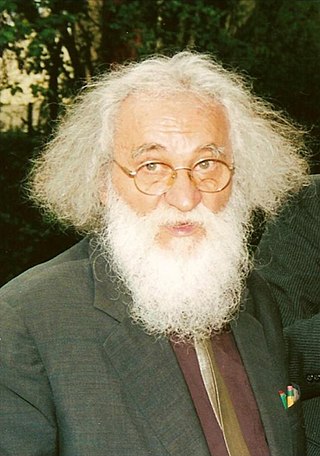
Gyula Király was a literary historian who lived and worked in Budapest, Hungary.



















